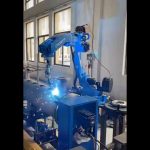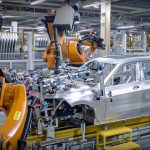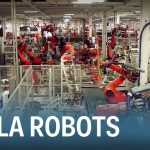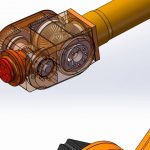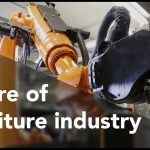https://realpars.com” with a suitable call-to-action that encourages viewers to check out the website for more information on Industrial Automation.
Title: Engineer’s Best Friend for Learning: Industrial Automation
Introduction:
In today’s fast-paced world, staying ahead of the curve in the field of engineering is crucial. As an engineer, you need a reliable companion that can provide you with the necessary knowledge and skills to excel in your profession. Look no further because Industrial Automation is here to be your best friend for learning. In this article, we will explore the importance of Industrial Automation and how it can benefit engineers like you.
Industrial Automation: Revolutionizing the Engineering Landscape
Industrial Automation refers to the use of advanced technologies and control systems to automate industrial processes. It has revolutionized the engineering landscape, enabling engineers to streamline operations, increase efficiency, and reduce human error. From manufacturing to energy, Industrial Automation has found applications in various industries, making it a must-know field for every engineer.
PLC vs. PC: Which is Better for Industrial Automation?
When it comes to Industrial Automation, one of the most debated topics is the choice between Programmable Logic Controllers (PLCs) and Personal Computers (PCs) as control systems. PLCs offer real-time control and reliability, making them ideal for critical operations. On the other hand, PCs provide flexibility and advanced computing power, making them suitable for complex applications. Understanding the strengths and weaknesses of each system is crucial in making the right choice for your automation projects.
Benefits of Industrial Automation for Engineers:
1. Increased Efficiency: Industrial Automation eliminates manual labor and repetitive tasks, allowing engineers to focus on more critical and creative aspects of their work. This leads to increased productivity and efficiency in day-to-day operations.
2. Improved Safety: By automating dangerous or hazardous processes, Industrial Automation minimizes the risk of accidents and injuries. Engineers can monitor operations remotely and take necessary actions in real-time, ensuring the safety of workers.
3. Cost Savings: The implementation of Industrial Automation reduces operational costs by optimizing resource utilization, minimizing waste, and improving energy efficiency. These cost savings can have a significant impact on the bottom line of any organization.
4. Enhanced Decision-making: With real-time data and analytics provided by Industrial Automation systems, engineers can make informed decisions quickly. The ability to monitor and analyze data in real-time enables proactive problem-solving and continuous improvement.
Conclusion:
Industrial Automation is undoubtedly an engineer’s best friend when it comes to learning and excelling in the field. It offers numerous benefits, including increased efficiency, improved safety, cost savings, and enhanced decision-making. As an engineer, embracing Industrial Automation is essential to stay competitive in today’s rapidly evolving industrial landscape.
Check the coil packing solution with a leading manufacturer for the professional solution just here.
Remember, Industrial Automation is not just a trend; it’s the future of engineering. So, don’t miss out on the opportunity to leverage its power for your professional growth.
[Call-to-Action] Visit our website at https://realpars.com to explore more about Industrial Automation and unlock the possibilities it holds for your engineering career. Industrial Robot
PLC vs. PC: Choosing the Superior Option for Industrial Automation

